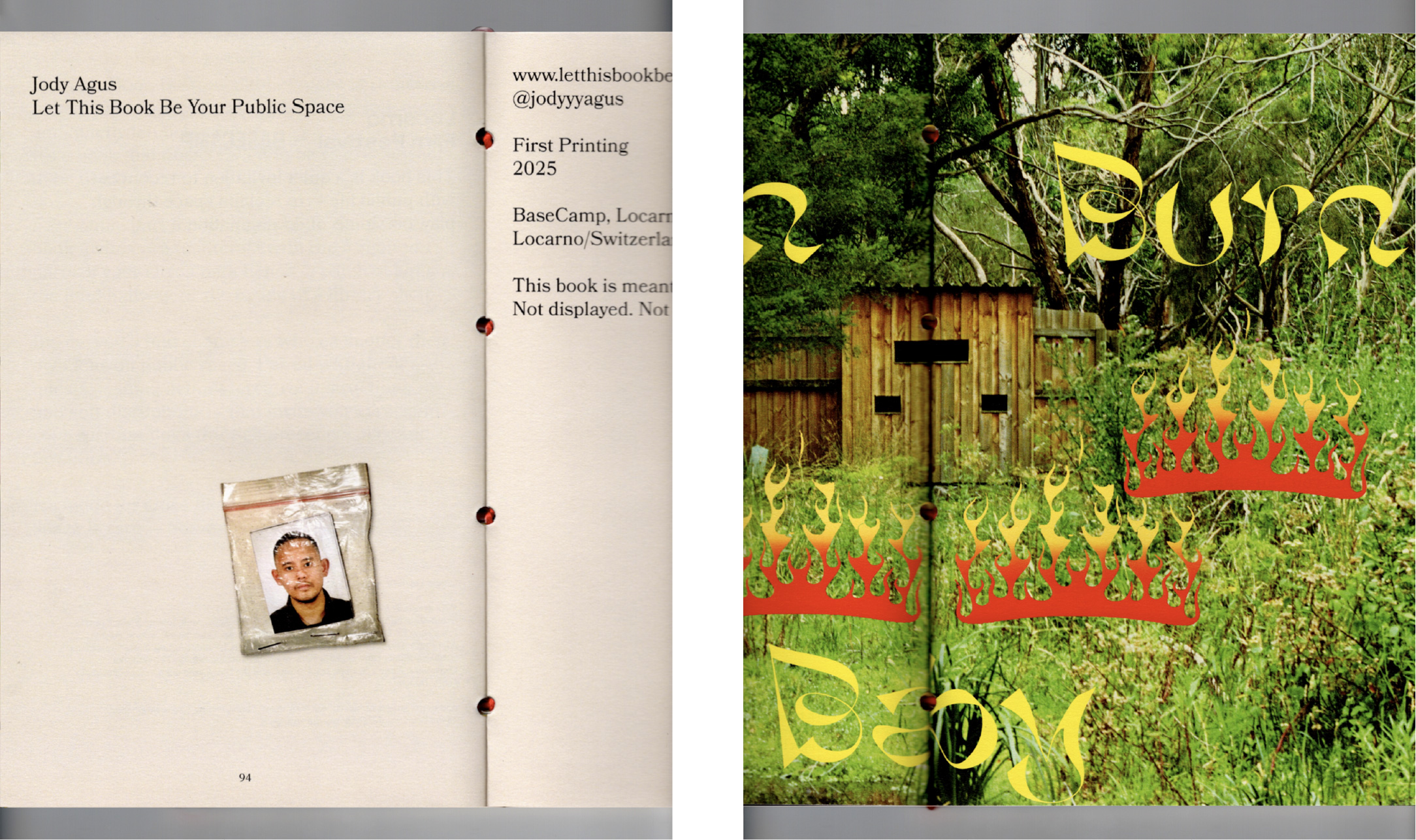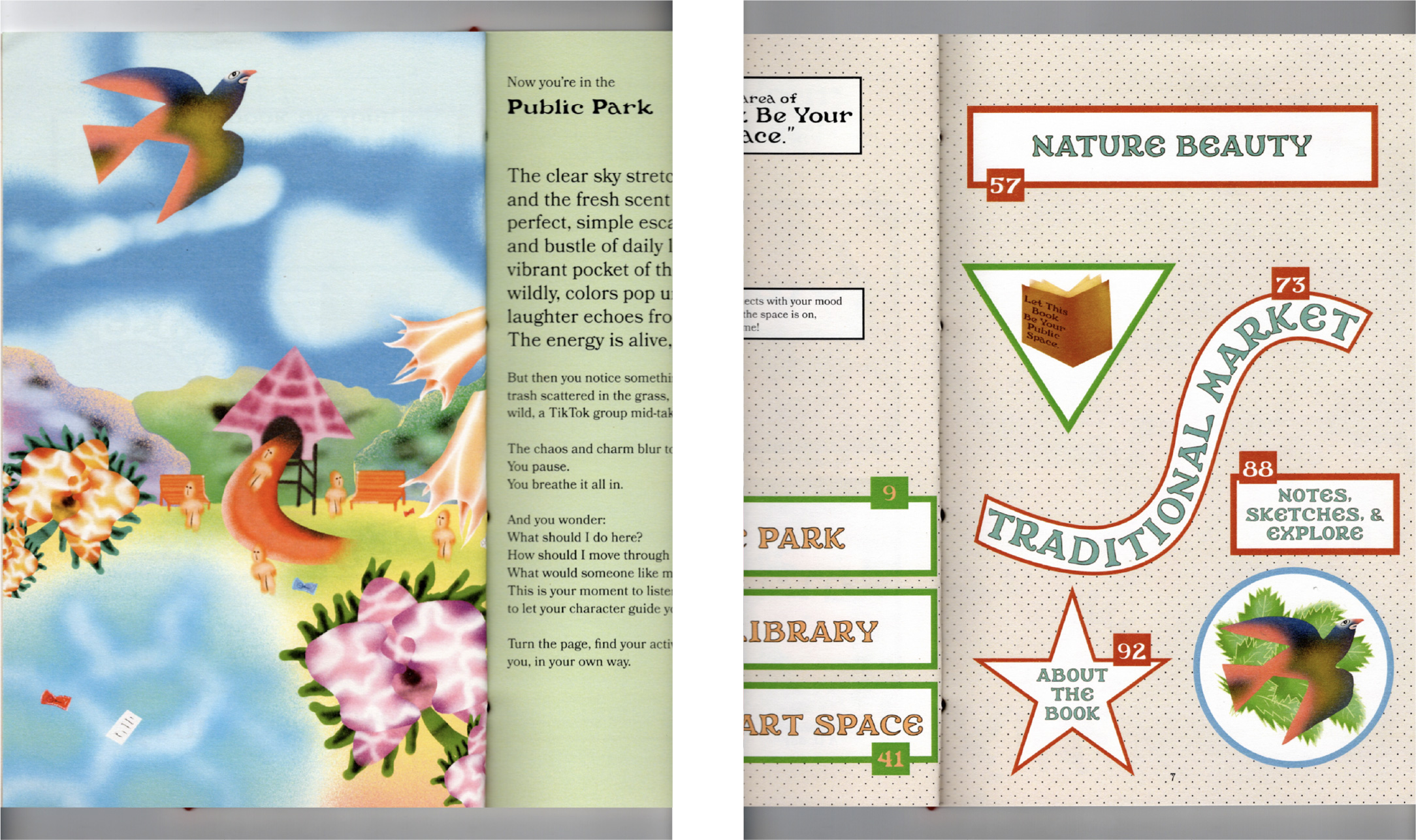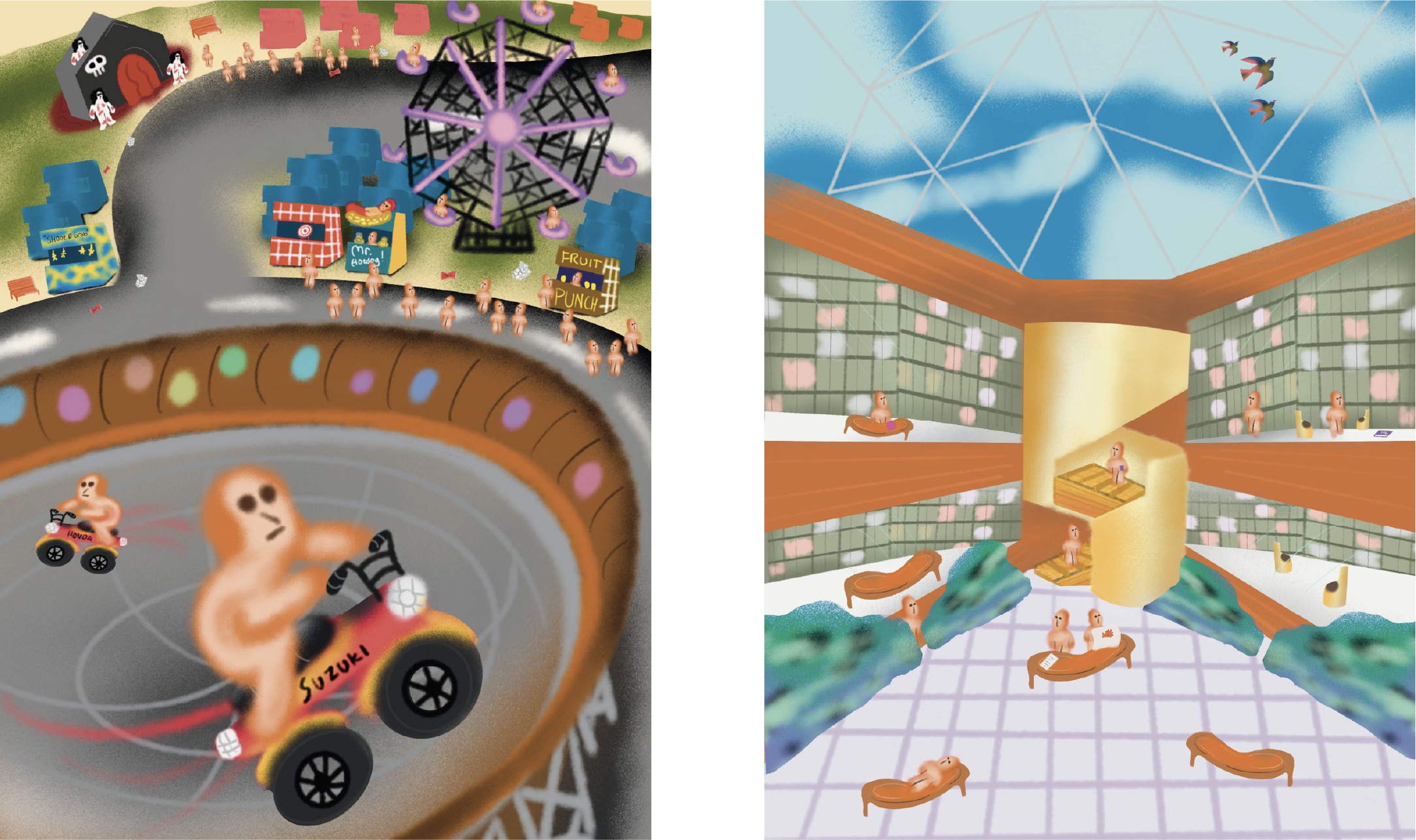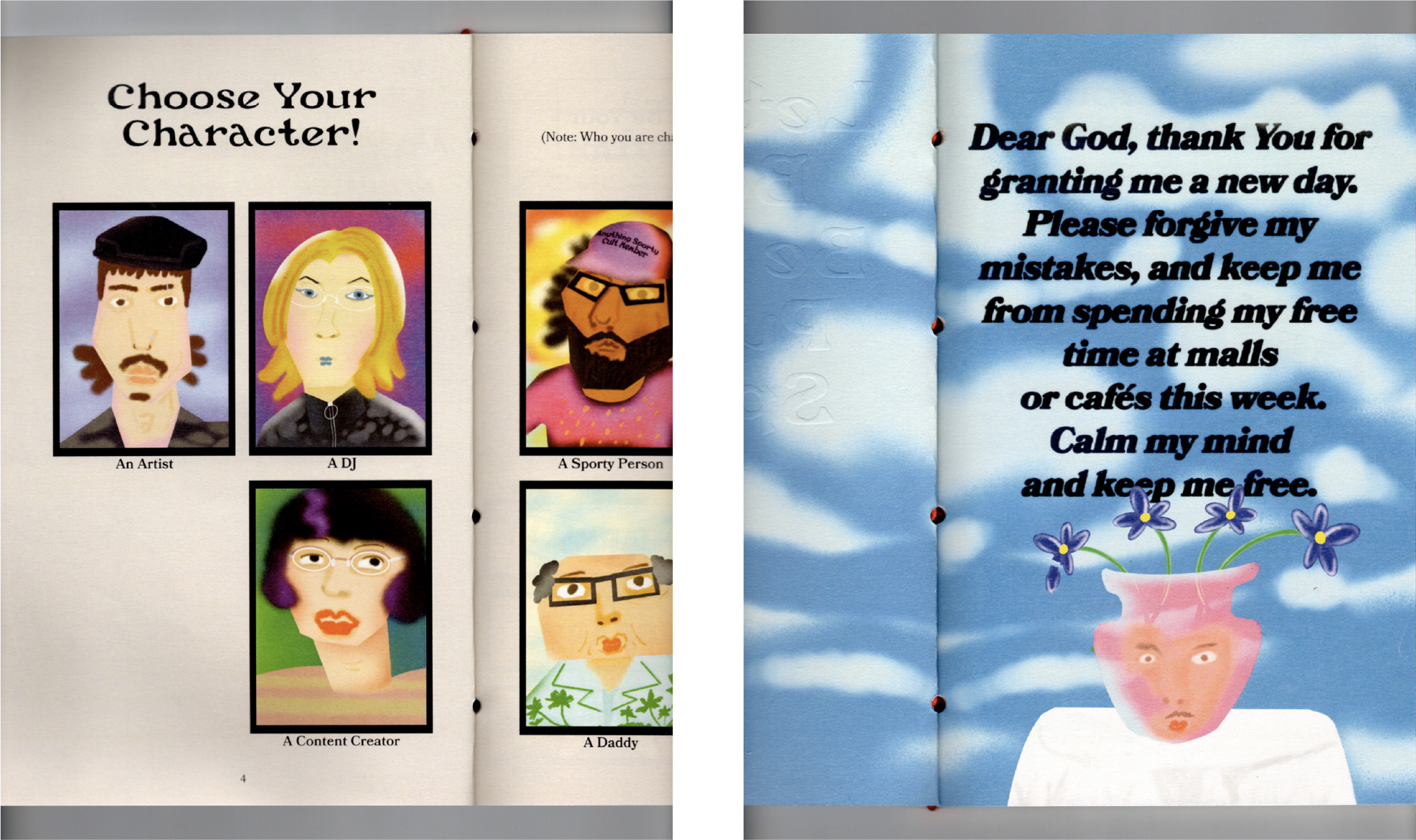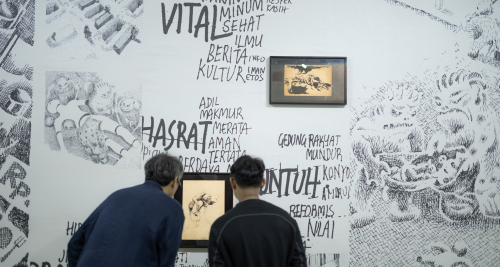Let the City Be Your Playground: Jody Agus and His Poetic Rebellion
If we are not given enough public spaces, at the very least could we imagine them?
The landscape of Jakarta is encoded by change, as structures are built – only to be transformed and fleshed into ruins. It is composed of skyscrapers, malls, and “communal” blocs that host trendy boutiques and cafés, padel courts that usher an image of “development,” where wealth dictates access into its space. Then, where do the public go?
Older generations recall a different Jakarta. A friend once told me that the city used to embrace nongkrong (roughly translated as dilly-dally): anyone could sit on the curb of a sidewalk or lounge across benches in Blok M. Rollerblading with friends, rehearsing a play in Taman Ismail Marzuki — these were once free and accessible forms of public life. Now, to occupy a so-called “public” site often requires payment in the forms of an overpriced drink, a bottle of water, or a snack. Streets are remodelled for business, and the freedom to simply be in the city has been replaced by the obligation to spend.
The frustration is widely felt. Social media is filled with critiques of gentrification, with histories of buildings at risk of demolition, with reminders that Jakarta’s commons are shrinking. Citizens resist in comment sections, in digital archives, in collective memory. But resistance also takes creative form.

Jakarta-based multidisciplinary artist and designer Jody Agus transforms this absence into a provocation. He describes the city as one “where green space is severely limited and leisure often means spending.” In response, he conceived a “poetic rebellion” in the form of his debut publication, Let This Book Be Your Public Space. More than a book, it is an invitation: if public space is scarce, why not imagine it into being? “Public space in Jakarta is limited, but imagination isn’t,” he writes. “If we can’t build new spaces, maybe we can remap the ones we already have.”
The project is part illustrated ritual, part analog game, and part urban guide. It introduces six fictional characters – an Artist, a DJ, a Content Creator, a Daddy, a Sporty Person, and an Entity – each guiding readers through quests across parks, libraries, markets, and cultural centers. These interventions ask the audience to rethink what is already around them: tracing invisible drawings with their feet, remixing the sounds of traffic, turning the chaos of a market into choreography, revisiting childhood games in the park, leaving secret notes for strangers to find. Each action transforms overlooked corners of Jakarta into stages of play and encounter.
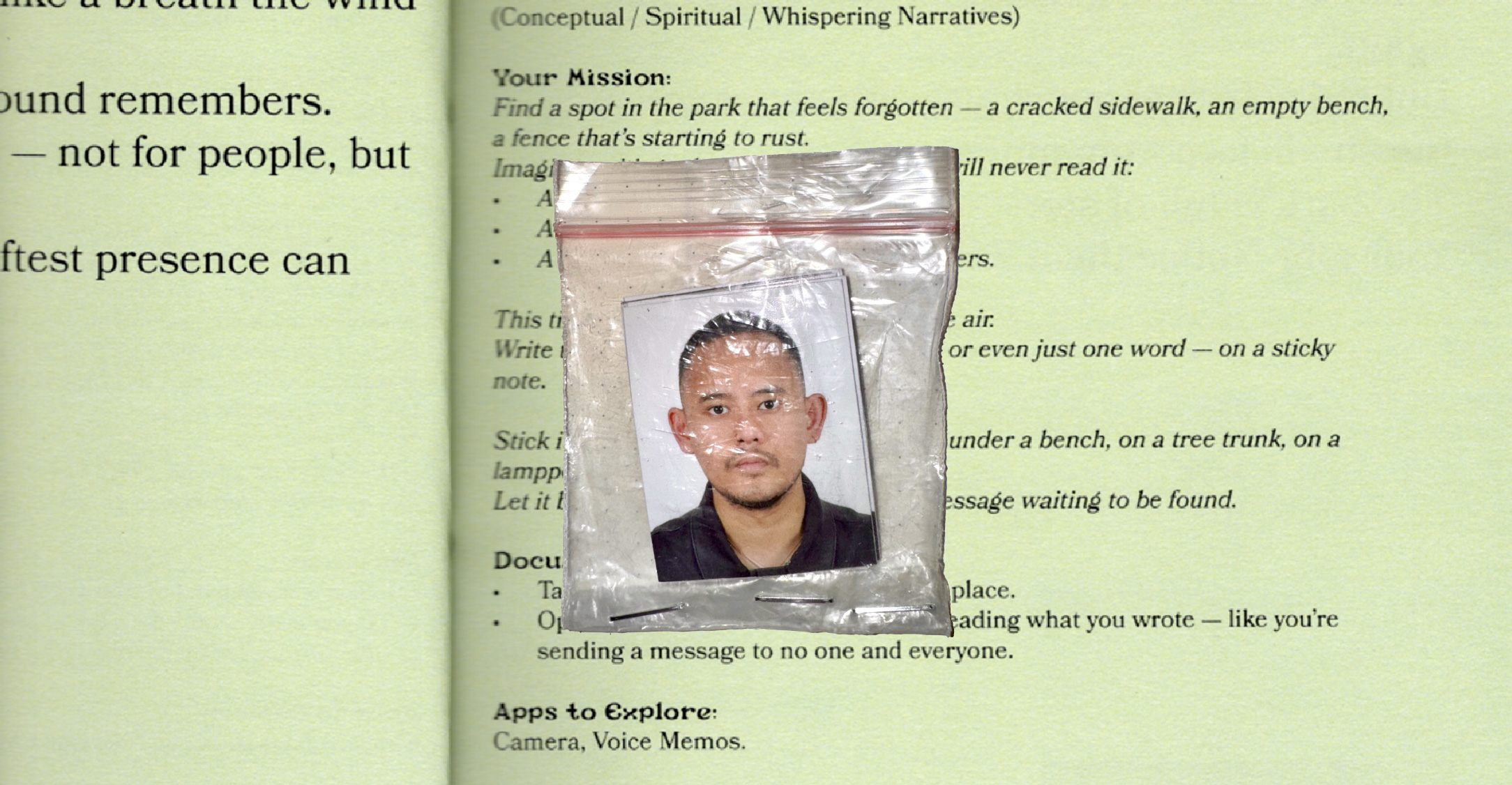
Readers are encouraged to document these experiences through writing, photos, sound, video and upload them to an online archive that geotags submissions across the city. The result is a living, growing community map of presence and memory, a testament that imagination itself can open new forms of publicness.
Launched at Locarno Film Festival’s Basecamp 2025 under the theme This Must Be the Place, Jody’s project exemplifies how artists can reframe the conversation on belonging and placemaking. With plans to launch in Jakarta and other cities worldwide, Let This Book Be Your Public Space suggests that the crisis of urban commons is not confined to one city — it is global.
If Jakarta cannot (or will not) grant its citizens enough public spaces, then perhaps the most radical act is to invent them together. For in imagining these spaces, we do more than escape the city’s restrictions, and so we begin to reclaim it as our own.










